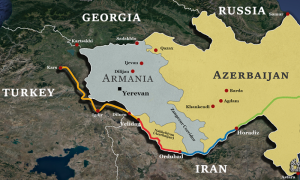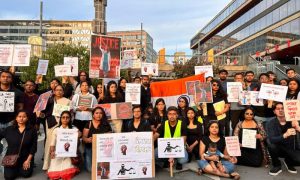ISLAMABAD: An elderly man facing the death penalty for murder kneels before a turbaned judge in a cramped courtroom at the Ghazni Court of Appeal in eastern Afghanistan.
The 75-year-old admits to killing a relative, which he claims he did in retaliation for rumors that he had been having sex with his daughter-in-law.
Law court
He will be publicly executed under eye-for-eye sharia punishments, which the Taliban supreme leader for the first time officially ordered last month. His victim’s relative will carry out the sentence. The elderly man begs, “We have reconciled the families. I can prove that we have a compensation agreement because I have witnesses,” according to AFP
Since the Taliban took back power in August of last year, AFP was granted exclusive access to a court in Ghazni to observe how sharia law is applied there. After the Taliban were ousted in 2001, hundreds of millions of dollars were spent creating a new judicial system that had experienced prosecutors, defense attorneys, and judges.
A large number of women were brought into the system to oversee cases involving ardent Taliban militants and to improve the gender balance in family courts. All of that has been done away with by the Taliban, who now have all-male clerics in charge of trials, judgments, and punishments.
Mohiuddin Umari, the head of the Ghazni court, says between sips of tea that the difference between the current system and that of the previous government “is as big as the earth and the sky.”
God guides us
Officials in Ghazni no longer hold court sessions in the city’s formal, Western-style courtroom; instead, participants sit on carpeted floors in a small side room.
A Kalashnikov rifle and religious books are placed on a bunk bed in the corner of the small room, heated by an old wood stove. Mohammad Mobin, the young judge, first listens without interjecting before posing a few queries.
He then issues an order for a subsequent hearing to be held in a few days, giving the elderly man time to gather evidence that the families have concurred with his claims. “The judgment can be revised if he proves his claim,” says Mobin. If not, “the qisas (an eye for an eye) enshrined in the sharia will apply,” according to the statement.
Since the Taliban’s return in August 2021, Mobin has been at the appeals court, surrounded by thin, handwritten files bound together by string. He claims that since then, about a dozen death sentences have been given in the province of Ghazni, but none have been carried out, partly because of the appeals procedure. The 34-year-old tells AFP, “It is very difficult to make such a decision, and we are very careful.
But if we have proof, God leads us and instructs us not to feel sorry for these people. If the elderly man’s appeal is denied, the matter will be heard by Kabul’s Supreme Court before being presented to supreme leader Hibatullah Akhundzada, who upholds all death sentences.
The Taliban carried out their first public execution since regaining power in the western city of Farah earlier this month, which rights organizations, foreign governments, and organizations widely denounced.

























